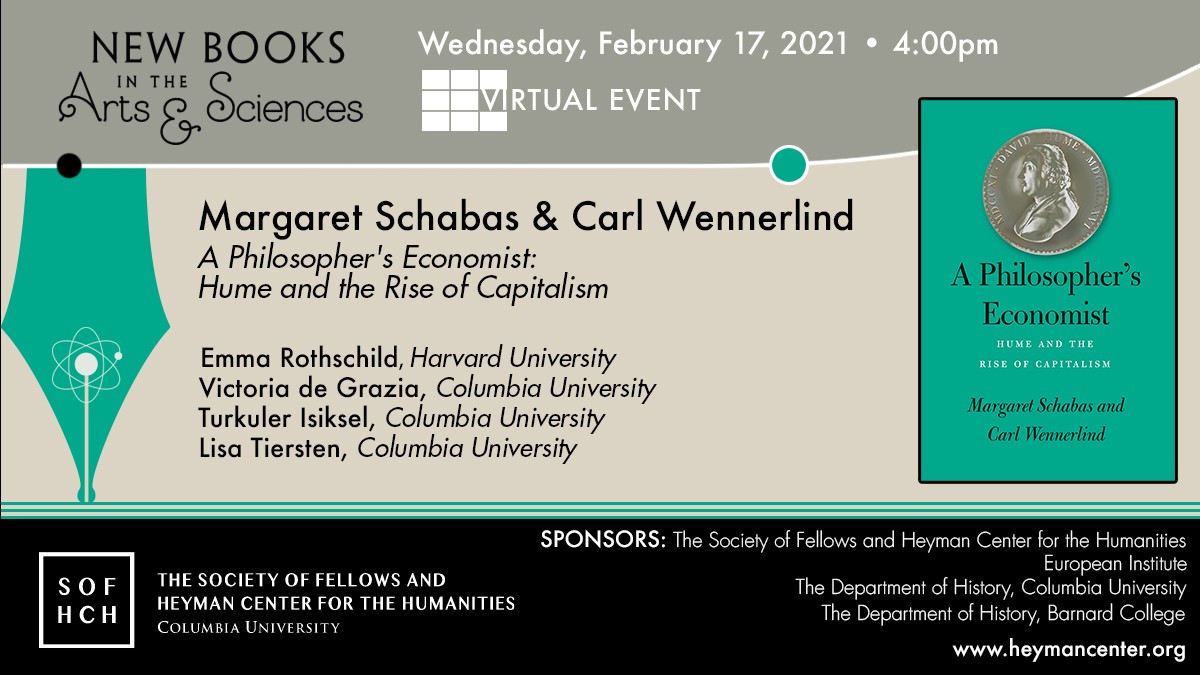Celebrating Recent Work by Margaret Schabas and Carl Wennerlind
A Philosopher’s Economist: Hume and the Rise of Capitalism
A live virtual event
Wednesday, February 17, 2021 | 4:00 - 5:00 pm EST
REGISTER HERE
Featuring the authors of A Philosopher’s Economist: Hume and the Rise of Capitalism:
Along with featured panelists:
- Emma Rothschild, Jeremy and Jane Knowles Professor of History, Harvard University
- Victoria de Grazia, Moore Collegiate Professor of History, Columbia University
- Turkuler Isiksel, Associate Professor of Political Science, Columbia University
- Lisa Tiersten, Professor & Chair of History, Barnard College, Columbia University
Although David Hume’s contributions to philosophy are firmly established, his economics has been largely overlooked. A Philosopher’s Economist offers the definitive account of Hume’s “worldly philosophy” and argues that economics was a central preoccupation of his life and work. Margaret Schabas and Carl Wennerlind show that Hume made important contributions to the science of economics, notably on money, trade, and public finance. Hume’s astute understanding of human behavior provided an important foundation for his economics and proved essential to his analysis of the ethical and political dimensions of capitalism. Hume also linked his economic theory with policy recommendations and sought to influence people in power. While in favor of the modern commercial world, believing that it had and would continue to raise standards of living, promote peaceful relations, and foster moral refinement, Hume was not an unqualified enthusiast. He recognized many of the underlying injustices of capitalism, its tendencies to promote avarice and inequality, as well as its potential for political instability and absolutism. Hume’s imprint on modern economics is profound and far reaching, whether through his close friend Adam Smith or later admirers such as John Maynard Keynes and Friedrich Hayek. Schabas and Wennerlind’s book compels us to reconsider the centrality and legacy of Hume’s economic thought—for both his time and ours—and thus serves as an important springboard for reflections on the philosophical underpinnings of economics.
Co-sponsored by: The Society of Fellows and Heyman Center for the Humanities, the Department of History (Columbia University), the Department of History (Barnard College), and the European Institute.
